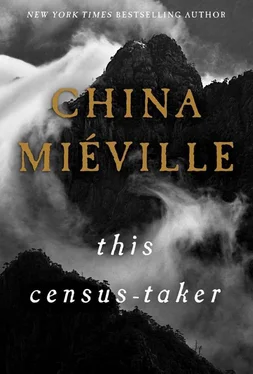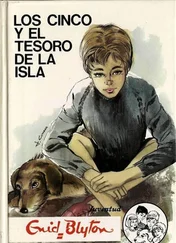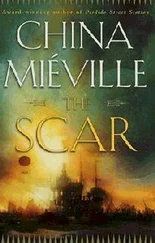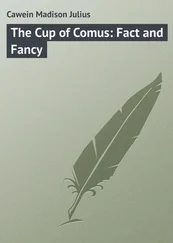“You know she’s gone.”
I stretched up on tiptoe and looked past him down the rocks. The tiny storm was done. They last only seconds, and if you’re caught in them their snowflakes are so minuscule and dry they feel like cold dust.
The man’s weapon had two barrels and they were not the same. One was thick enough that I could have put two of my fingers into it, the other perhaps half that bore.
“This?” he said. He took it from his shoulder and held it for me to see. “It’s a combination gun. Look, two triggers. This”—he tapped the broad-gauge tube—“a shotgun. It spreads possibilities.” He made an extending cone with his hands. “And this?” The other. “This rifle’s a long-range single shot.”
He showed me how he’d aim with it.
“You can shoot one, the other, or both. The rifle shoots right down the very center of the spread. Like an average. A range and its mean. This is an averaging gun.”
He shouldered it carefully again.
“They said your father’s wife is gone, yes, that’s what they said to me,” the man said. He held his pen above his clipboard. “We can get started,” he said. “We can save time. You tell me about it.”
—
And I who months before had run into town screaming my accusation was shy to say it now that I was asked to put it in clear words. I’d grown used to this world in which everyone knew what had happened or what I said had, in which it had gone from being spoken to being unspoken again, a secret everybody knew. Here I was, hesitating to speak it. I took persuading. The foreign man would have to work on me.
He waited with his pen ready. He said to me, “What I do is I count people. I count people and things.
“Not everyone. If you counted everyone you’d never stop, would you? I’m putting things in sets. My job’s to count just the people who were born where I was, or whose parents or grandparents were. Then I write down what I’ve counted. That’s my job. I started years ago, when we decided we had to take stock of things. After troubles. We needed to know where we were. Where we all were. So I go all over counting people from my home. I’ll show you where I put it all. There are books.
“Your father came here a long time ago and he’s my responsibility. I have to mark his details, you see. I know you were born here. If I’m marking down about him that means I have to mark down something about you. And something about your mother. I have to get the details right. There aren’t many in this town who come from where I do, but there are a few. One’s a poultry farmer. She told me there was one more person of my polity up here. On this job, yours is the last family I have to account for.”
—
I told him what my father had done.
I told him what he’d done not only to my mother but to the others, to the people and the animals. I told the man as he stood on my front step in the leaf-dust, disallowed from the house because my father had forbidden me to let anyone in.
The visitor listened. I couldn’t see what he wrote down.
I don’t know if my voice shifted up and down with hope and desperation. I didn’t know when my father would come home. I wouldn’t look in the direction he’d taken, nor would I step forward to see the path, with him perhaps rising on it now. I told it all again.
It must have been confused and it must have taken a while. I sat cross-legged in the threshold and kept talking. The man stood and wrote. Twice his mule called for him and he ignored it.
I didn’t tell the story to ask for help because I knew there was no help. I told the man because he asked me to, because that was what he said he wanted. For his notes.
“Where was she from?” he said.
I shook my head. I was crying a bit by then, without noise.
“From here,” I said. “But she went to live by the sea. That’s where they met. I have something she wrote. But I don’t think she wrote it. D’you want to see?”
“I do.”
“I’ll get it for you.”
“You told all this to the people in the town,” he said.
“They said they can’t do anything because of no proof.”
He looked up and said, “Do you know why your father ran here in the first place? I know. Where do you think your mother is?” He said that quietly and didn’t lower his clipboard.
My voice caught and it took several attempts to answer.
“In the hole,” I said.
“In the hole. Maybe you can show me the hole.”
I did nothing and he regarded me.
“You remember the job I have to do?” he said. “You remember I need to write down everything I can about your mother? So I should see what there is to see so I can get all my details right.
“Show me.”
—
I took him to the rubbish hole.
We went around the house and up onto the rough ground between thorns and dock bushes and a few meters beyond the closest trees I passed by where I’d buried the bottle with the skeleton still inside.
Looking back I saw the roan mule on the path. A big animal laden under packs. It looked up as we came into its sightline and put back its ears and huffed at us as we ascended.
I stood at the cave mouth’s rocky stockade and gestured within.
The man entered. He walked in and stopped where the crack split the darkness of the cave with a darker cut. He leaned carefully over as the hunter and the schoolteacher and my mother and father had done.
He got onto his hands and knees and gripped the edge and lowered his head into the rift. I watched him with my hands held tightly to my chest.
I said, “It goes on down.”
“It does,” he said. He didn’t turn to me and his voice was faint. He was speaking into the dark.
“No one can see inside,” I said. “No one can see down there.”
“Well,” he said. He rose. He turned and came back into the day brushing dirt off his knees and the palms of his hands. “I have to be sure, that’s part of my job. So let me see.”
When he left me there I was too surprised to be afraid as he walked briskly back the way we had come. I didn’t know if I was wanted so I waited and he quickly returned carrying a satchel.
“One thing I do have to count,” he said, “is spouses.”
He took out a tube of glass or clear plastic the size of a hammer handle and pressed something, shook it, and the cylinder glowed. It went quickly, coldly bright.
I climbed over the entrance rocks and came into the cave toward him.
The man held out the stick of light and dropped it into the hole.
I gasped to see it plummet, fleetingly illuminating the jagged rock sides, dwindling, knocking loudly end to end on the stone until it was invisible.
We watched. The man exhaled.
He took out a flashlight, thick rope, hooks and spikes and buckled leather for his chest, into which he shrugged. I watched with some growing emotion.
“No one can go down,” I said.
“Yes, well, I have a job,” he said. He hammered clasps into the rock. “I have to count. I have to track everything.”
He attached hooks and the cord to these anchors. He spooled it around his harness.
“You can’t,” I said desperately. “You can’t.”
“Do you know how you could help me?” he said. “You know what I need? You should listen. Can you do that? Listen as hard as you can. And if anyone’s coming you should shout down and tell me.”
He gave me another of the tubes. It was pleasing and heavy in my hand. I could see two just-distinct clear liquids inside. “If you hear anyone, you press this.” A plunger to crack the wall between the chambers. “Can you do that? Then you shake it and drop it right in.”
“What if I hit you?”
“Then I’ll have a bump on my head.” He made a silly face.
Читать дальше












